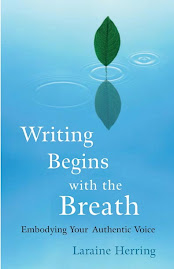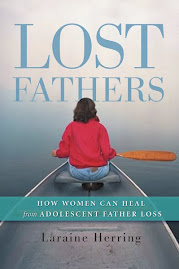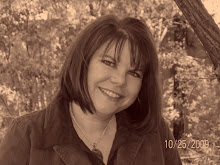Monday, November 29, 2010
So You Want to Write a Novel
If only I wrote this, but I didn't. But I could have. And at this time of the semester when I have heard everything (& I mean everything) about how easy writing is, how anyone can do it, why grammar doesn't matter (there are editors, silly girl!), why reading is dying, why there's no craft involved in writing, no work involved, no revision, no discipline (it's creative after all) ... how I want to be allowed to say, as this poor teacher in the video says, "I wish I could kill you and get away with it."
But I can't say it.
So, for all of you who are teaching writing, this is for you. And for all of you who are writing, this is for you.
And for those of you who are my students who do get it (and I know who you are, and I think you do too...) thank you. It's because of you that I can stand the rest of it. If you know why the phrase "fiction novel" is hilarious, thank you. If you know why this dear young writer is delusional, thank you. If you understand why phoning agents is hilarious, why "I've been living my life, not wasting my time reading" is hilarious, why "but my idea is a guaranteed bestseller", why the emphasis on "my work is copyrighted" is hilarious, and why "but I'm the talent" is hilarious, thank you, thank you, thank you. Come back to my class anytime. We'll work it.
And to whomever put this video together, thank you for saying everything that my overworked, end of the semester internal censor must stop cold at my teeth.
I'll see you on Oprah. :-) (that's hilarious too...)
Wednesday, November 17, 2010
In Defense of Fiction

Something has happened. Somewhere along the line, imagination has become a bad word. Reading stories that are not "true" has become a waste of time, something one does while waiting for a root canal, or because one is in a literature class being force-fed novels. There are so many "true" books out there, why read fiction?
I hear this from my students (keep in mind, these are students who want to be writers). The gifts of a story, a piece of fiction, have gotten lost in the labyrinth of information and data and statistics that have become the ways in which we measure the success of our lives. I simply cannot tell you how this breaks my heart. Data never makes me cry (well, maybe in frustration). Information may tell me which train to take and what corner to stand on to catch that next bus, but it won't make meaning of my journey. The meaning comes from the filters. From the point of view, from the characters, from the false starts, the connections, the disconnections, the revisioning, and most important of all, the reflection.
The characters from my childhood fictions (Ramona the Pest, Harriet the Spy, Betsey, Tacy and Tibb, Paddington the Bear, the Velveteen Rabbit) are as much a part of my family as my literal family. Toni Morrison's stunning character Beloved, Shug Avery in Alice Walker's The Color Purple, Saul Bellow's Henderson the Rain King, John Grimes from James Baldwin's Go Tell It On the Mountain, Rosa in Alma Luz Villanueva's The Ultraviolet Sky -- these characters, these people, (and thousands more) showed me something about myself. They showed me something of the world, of a different way of living, of unexamined possibilities.
Data did not tell me I could be a writer (though my childhood test scores showed that.) Harriet the Spy told me that. Data did not tell me I could move out of Phoenix, but Rose in The Ultraviolet Sky did. I don't know how to show my students how much fiction matters. The obsession with 'truth' in world filled, at best, with 'truthiness', is puzzling to me.
I fear that we are losing the people underneath all our knowledge.
I fear that we are losing empathy in our desire to be right.
I fear that we are losing compassion in a rush to be first.
What if we stopped dividing into true/not true and just told stories? What if, by "just" telling stories, we learned to listen rather than argue? And what if, in the middle of all of that, we heard one another rather than distilled each other's words down to the lowest common denominator?
Even I cringe at the Pollyanna-ish nature of that paragraph. (But Pollyanna, of course, was a fiction). But I am going to continue to shout it out because I cannot bear the thought of a world without stories. I cannot imagine who I would have been without them.
Read them. Write them. Tell them. Nurture them. Buy them. Make up characters and dance with them. Create storylines and inhabit them. It is imagination that will free us. It is imagination that will open doors.
This image below is from Phillip Toledano's website Days With My Father. The website is a gorgeous photo essay of the final days of his father's life. His dad had Alzheimer's and died at 99 years old. The photo essay opens with the death of Phillip's mother, Helene. His father doesn't understand where Helene has gone, and it's tearing both of them apart for Phillip to keep saying day after day, "She died, dad. Mom died." So, Phillip told him that she had gone to Paris, which seemed to help them both. A fiction. A truth. Please go take a look at Phillip's website. It ends with this note that his father had written to Helene (who had already died, of course, but was, to him, happily in Paris).
Now tell me again why fiction doesn't matter. Why only the literal truth (whatever that is) will save us. Tell me again why we communicate best in zeros, ones, and pie charts.
Tell me again, but please, tell it to me in story, the language of my heart, the only language of love.
Subscribe to:
Comments (Atom)











